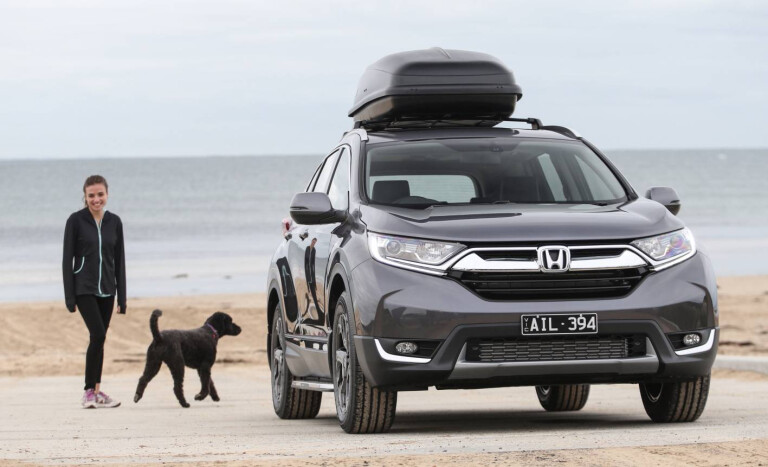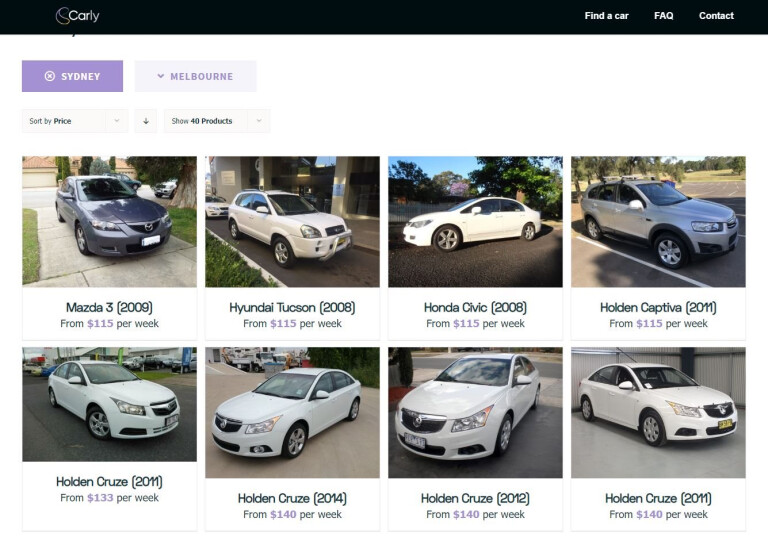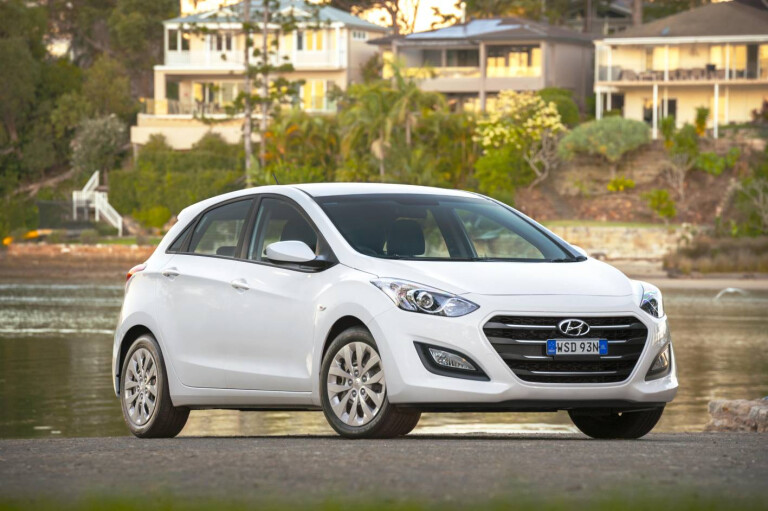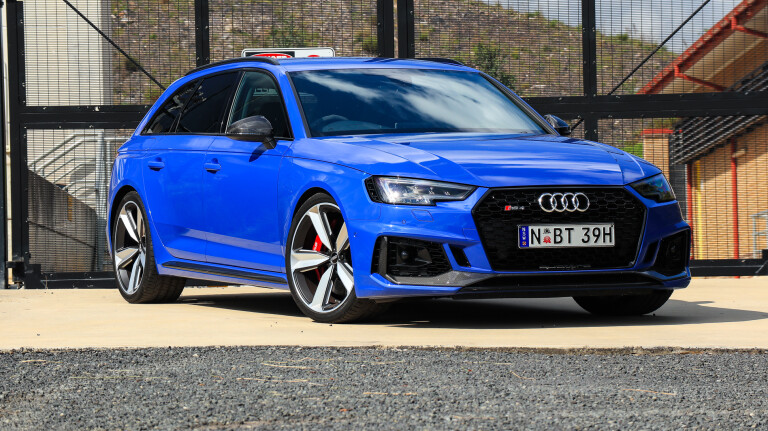
By 2025 1.9 million cars on Australian roads could be subscription cars. That’s 10 percent of the country’s current road fleet, and almost four times the 515,472 private vehicles sold in 2018.
That optimistic prediction by Forbes made in 2019 was always going to require a revolutionary shift in how Aussies view the ownership of their cars, which have long been seen as the second most significant purchase after the family home.
And it seems that shift may be happening sooner than expected, with the Covid-19 pandemic making people reassess their vehicle ownership requirements due to remote working arrangements and financial insecurity.
New research by vehicle subscription firm Carly has revealed 38 percent of Australians would consider subscribing to a car rather than purchasing or leasing a vehicle.

After COVID-19 cut her retail hours, Sophia, 22, took out a vehicle subscription through Carly instead of committing to a car loan. Picture: Belinda Rolland
According to the report, the shift in consumer preferences towards flexible car access has risen by 18 percent compared to six months ago when the pandemic had yet to impact Australia's economy.
Not surprisingly the survey found younger people were more likely to reject traditional ownership or leasing options in favour of subscribing to a car with 69 percent of Generation Z (18-24 years) indicated a preference for a no-strings-attached subscription option, followed by Millennials (25-34 years) at 50 percent.
Meanwhile, 47 percent of households with children would consider subscribing to, rather than purchasing, their next family car.
What is car subscription?
For car enthusiasts, the annual expenses of owning a special car are like any other part of a hobby or passion. But it’s a different story for people who view their car as a necessary appliance and prefer not to be bogged down by registration, insurance, finance and maintenance costs, as well as associated inconvenience and paperwork.

It’s the discerning but time-poor driver whom a number of vehicle brands and third-party providers are targeting with Netflix-style subscription services that allow you to swap your vehicle according to your lifestyle, without the commitment of ownership or finance contracts.
The format varies from brand to brand but each service revolves around the same principle. For a weekly, monthly or annual subscription, customers have access to a range of models.
If, for example, the subscriber is off to the snow for the weekend, they might request a large SUV to cart people and kit. Back home, a smaller passenger model may be more practical to live with for the daily commute, and for the odd summer weekend there could be a convertible or something a little more rewarding to drive.

Not to be confused with car-sharing schemes that, for a membership fee, allow you to rent a vehicle when you need it, car subscription is a little like a mobile phone plan in which all costs are covered by one monthly payment but it allows you to change the handset whenever you like.
Of course, the service comes at a price, but for many users, the fee may be less than their ownership costs.
When all associated costs are factored in, including finance, registration, tax and maintenance, the subscription may be the most cost-effective solution, particularly if a customer is able to replace more than one car as part of the plan.
What does car subscription cost?
Car subscription is still in its infancy in Australia but there are already a few services such as Carly, FlexiGo and Carbar that offer affordable options using new and used cars from a wide variety of makes, models, sizes and powertrains, including electric vehicles.
Carly and Carbar compare their services to Netflix in that there are lock-in contracts and you can cancel at any time subject to a relatively brief notice period.

Using Carbar as an example, you can obtain a vehicle from as little as $139 a week, which will get you something like a base-spec 2015 Suzuki Swift GLX hatchback. Of course, that price goes up as you opt for something bigger, better and newer.
For example, want a new 2018 model year Mazda CX-5 with leather seats valued at $33,990? That would cost about $269 a week with an up-front fee of $1699 should you want to hang onto this car for the term of the subscription, which has no minimum term.
Alternatively, you can opt for a flexible Shift subscription, which will let you swap from the CX-5 to another vehicle every three months for $379 a week with a $2000 up-front fee. This is great if you really like that new car smell.

These prices include insurance (subject to liability excess), registration, roadside assistance and maintenance. And for many people, this would also include the cost of financing a vehicle, which in the case of a $30,000 unsecured loan would be about $155 a week over five years based on an 11.90% interest rate.
Manufacturers are also adopting the subscription model, though so far this is mostly confined to luxury brands. Audi will be one of the first to introduce the concept in Australia with its Audi on Demand service that from next year will provide subscribers with a selection of models to suit their lifestyle.

Other brands such as BMW, Mercedes-Benz, Porsche, Volvo and Lexus, which also have subscription services overseas, will look closely at how Audi fares in Australia before fully committing to the concept here.
Such subscription rates will cost anywhere from $1500 to $4000 a month, and even more for high-end sports cars. It’s hoped more mainstream brands such as Ford and Toyota will enter the market to offer more affordable options.
Car subscription pros
- Easy online shopping takes the footwork and stress out of buying a car. Some providers will even deliver it to you.
- Flexibility to change vehicles to suit lifestyle or different needs
- A single payment covers everything. No more forgetting to pay your rego or insurance bill.
- The ability to not pay for a car when you don’t need one, such as when travelling overseas.
- The promise that all cars, including used ones, will be in good shape.
- It allows you to try a model or type of vehicle before committing to buy one.
Car subscription cons
- Up-front payments when taking a subscription.
- Your subscription may include conditions such as limited kilometres and restrictions on additional drivers or using the vehicle for business.
- The weekly payment may factor in depreciation, meaning you’re paying for depreciation for a car you won’t own.
- Car manufacturer subscription will limit the type of vehicles on offer.
- As with renting a house, you can’t make any modifications to the vehicle.
- Car subscriptions may not be available in your area, particularly if you live outside the eastern states.
COMMENTS